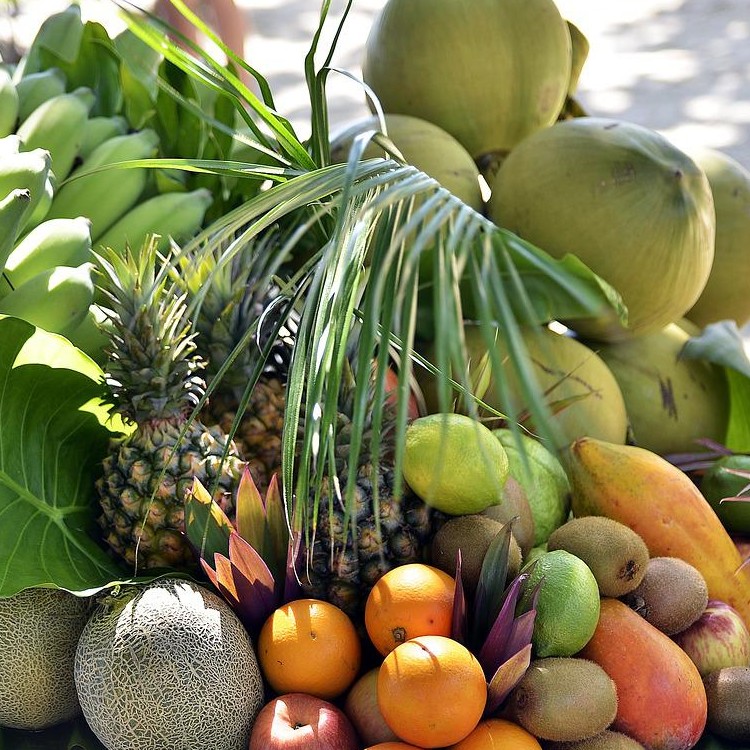Published:
Warmer weather is approaching, and with it comes the chance to enjoy all-natural, refreshing summer fruits. Bananas, coconuts, grapefruits, guava, pineapples, mangoes, and more all serve as welcome complements to the warmth of summer. While this is the only time of year to enjoy such treats at their best throughout much of the United States, many countries rely on the year-long production of the fruits as a key contributor to their inner economy and diet.
It’s surprising, therefore, that exports of tropical fruits are relatively low compared to how much is produced. The largest producer of tropical fruits globally is India, accounting for an estimated 28% of the earth’s total tropical fruit trade. India had around 100 million metric tonnes of fruit during the 2019-2020 season. However, in 2017 their total exports of fruits amounted to only about 950,000 metric tonnes. This means that only around 1% of the fruits produced in India were exported out of the country in recent years.
Part of the reason for this discrepancy arises because fruits are difficult to preserve during prolonged periods of travel. The losses associated with this difficulty are known as “post-harvest,” or PH, and they affect every step of the cross-continental supply chain. According to redalyc.org, a complete trip through the international food transportation chain can lead to maximum PH fruit losses of 15.88%. This equates to millions of dollars of lost productivity and profit. Another problem for the tropical fruit supply chain is that many exporters do not export through well-established and organized supply chain companies. Instead, 95% of producers opt for more traditional (and inefficient) supply routes that pass through farmers, auctioneers, wholesalers, sub-wholesalers, retailers, and more. Companies specializing in international transportation have more experience, better technology, and more talented human resources. Suppose the world’s tropical fruit-producing countries hope to capitalize on their competitive advantage more effectively. If so, they may want to consider stepping into agreements with such supply chain specialists more often.
One sign that more tropical fruit producers of the world may be heading toward this type of partnership is the recent pairing of several alphonso mango farmers in India with a food and tech firm from Switzerland known as Innoterra. The partnership allows the traditional methods of local farmers to be combined with the resources and technology of an international corporation. As a result, quality checks on the Alphonso mangoes occur at every supply chain step. In addition, the more refined shipping methods of Innoterra and its associates have already led to much lower PH losses.
Cross-continental shipping companies are coming up with increasingly innovative and effective ways to ship fruits over long distances without spoiling the harvest. As the world enjoys the benefits of these technological advances, and as more local farmers enter into business relationships with such companies, exports of tropical fruits may increase to levels that better meet their year-round demand. Perhaps, soon enough, the flavors of the tropics will be readily available all year long.
File under






